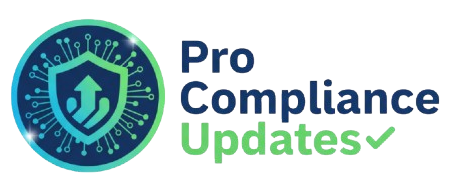The Purchasing and Accounts Payable cycles create a multitude of data that can be analyzed and tested for certain elements of possible fraud. Accounts Payable is considered the "checkbook" of the organization and therefore creates an area that without the proper control environment can be ripe for fraud. Internal Audit organizations have the ability to spend resources to analyze the data that comes out of the process to enable the organization to feel comfortable that controls are in place and functioning properly or that there may be fraud occurring. There are simple ways to analyze large volumes of data that come from paying invoices. Understanding the data is the first step toward knowing what to look for. The course will spend some time discussing the use of Audit Control Language (ACL) and how this tool and other tools like it (IDEA) are helpful in the analysis of Accounts Payable and Purchasing data.
WHY SHOULD YOU ATTEND?
With an increased awareness of fraud and the ongoing cost to organizations, taking a proactive stance on performing anti-fraud audits in Purchasing and Accounts Payable is imperative to most organizations. According to the Association of Certified Fraud Examiners (ACFE) "Report to the Nations on Occupational Fraud and Abuse" published in 2012, it predicted that 5% of an organization's revenue is lost to fraud. This course will provide you with a basic understanding of fraud, different data analyses that can be utilized, proactive accounts payable Anti-Fraud examples of reviews that can be conducted, and different data analysis tests that can be performed. Some knowledge and use of ACL or IDEA is suggested but not required.
AREA COVERED
- Examples of proactive accounts payable anti-fraud reviews
- Different data analysis tests that can be performed on accounts payable data
- Different data analysis tests that can be performed on purchasing data
LEARNING OBJECTIVES
- The fraud triangle and statistics from the ACFE
- A basic understanding of fraud and the different types of fraud that can occur
- Understanding the data that A/P or IT can provide for analysis
- Different data analysis tools that can be utilized (ACL vs. IDEA or just Excel)
WHO WILL BENEFIT?
- Internal Audit personnel involved in Fraud related activities
- Internal Audit Management is interested in performing anti-fraud audits of Accounts Payable and Purchasing Cycles
- Professionals responsible for or interested in performing anti-fraud audits
- Risk/Compliance Officer in any industry
With an increased awareness of fraud and the ongoing cost to organizations, taking a proactive stance on performing anti-fraud audits in Purchasing and Accounts Payable is imperative to most organizations. According to the Association of Certified Fraud Examiners (ACFE) "Report to the Nations on Occupational Fraud and Abuse" published in 2012, it predicted that 5% of an organization's revenue is lost to fraud. This course will provide you with a basic understanding of fraud, different data analyses that can be utilized, proactive accounts payable Anti-Fraud examples of reviews that can be conducted, and different data analysis tests that can be performed. Some knowledge and use of ACL or IDEA is suggested but not required.
- Examples of proactive accounts payable anti-fraud reviews
- Different data analysis tests that can be performed on accounts payable data
- Different data analysis tests that can be performed on purchasing data
- The fraud triangle and statistics from the ACFE
- A basic understanding of fraud and the different types of fraud that can occur
- Understanding the data that A/P or IT can provide for analysis
- Different data analysis tools that can be utilized (ACL vs. IDEA or just Excel)
- Internal Audit personnel involved in Fraud related activities
- Internal Audit Management is interested in performing anti-fraud audits of Accounts Payable and Purchasing Cycles
- Professionals responsible for or interested in performing anti-fraud audits
- Risk/Compliance Officer in any industry
Speaker Profile
 Marna Steuart
Marna Steuart
Marna Steuart has been in the audit industry for over twenty years. Ms. Steuart began her career with a big four firm as an external auditor, then as an internal auditor in different capacities in various industries. Ms. Steuart has performed collective bargaining contracts, and construction contract audits of several third-party contracts. She has also performed vendor contract audits of purchase power contracts and third-party vendor contracts for services throughout her career as an internal auditor. She has firsthand knowledge of where to look in a contract for possible risks and of case studies that would save thousands of dollars’ …
Upcoming Webinars

Leadership: Strategic Planning and Decision Making

Writing Techniques for Auditors and Risk Management Profess…

Language is Code - Intro to AI - Generative AI - ChatGPT an…

Gossip-Free: Leadership Techniques to Quell Office Chatter

Do's and Don'ts of Giving Effective Feedback for Performanc…

Women’s Hostility to Women at Work: Myth or Reality

4-Hour Virtual Seminar on Audit Proofing your Payroll Opera…

Do's and Don'ts of Documenting Employee Behaviour, Performa…


Retention Starts Here: Stop Losing Your Critical Talent and…


Practice Safe Stress ™: Preventing Burnout While Building R…

Impact Assessments For Supplier Change Notices

Cleanroom, Microbiology and Sterility Assurance Practices f…




Thriving in a Hybrid Workplace: Keys to Leadership and Team…

2-Hour Virtual Seminar on DeepSeek vs ChatGPT AI for CPAs a…

Understanding EBITDA – Definition, Formula & Calculation

FDA Regulation of Artificial Intelligence/ Machine Learning

Construction Lending And Real Credit Administration: Evalua…

Sunshine Act Reporting - Clarification for Clinical Research

How the OBBB Act will Impact Immigration Enforcement! Preve…


2-Hour Virtual Seminar on Outlook - Timesaving Tips and Tri…


Leadership Upskilling: Don’t Just Manage; Lead with Influen…

H-1B Visa Updates and Employer Strategies for 2026

Aligning Your HR Strategy with Your Business Strategy: A Ro…

HIPAA 2025 – Major Changes, Latest Rulings & Guidance

AI for Excel Professionals: Enhancing Productivity with Cha…

Dealing With Difficult People: At Work & In Life

Understanding Accounting for non - Accounting professionals



Excel Power Skills: Master Functions, Formulas, and Macros …
